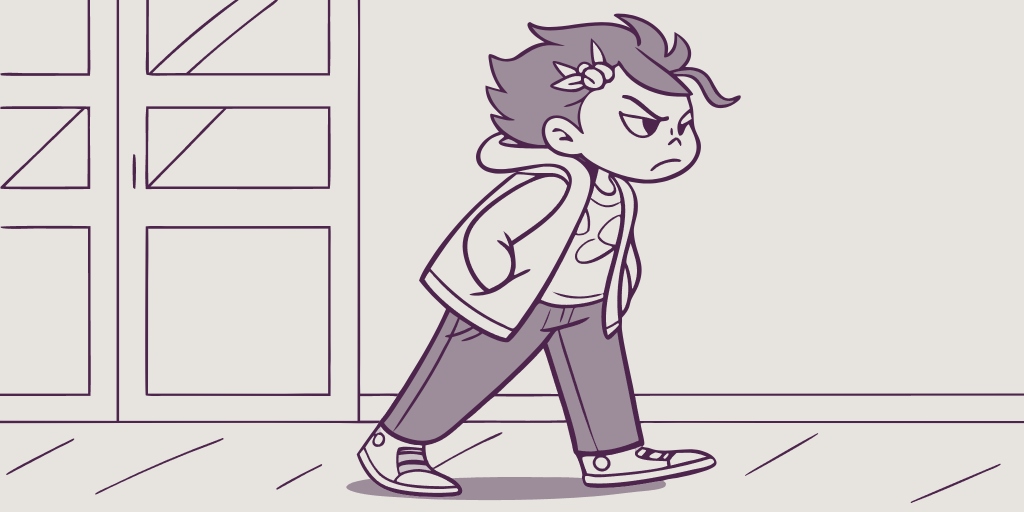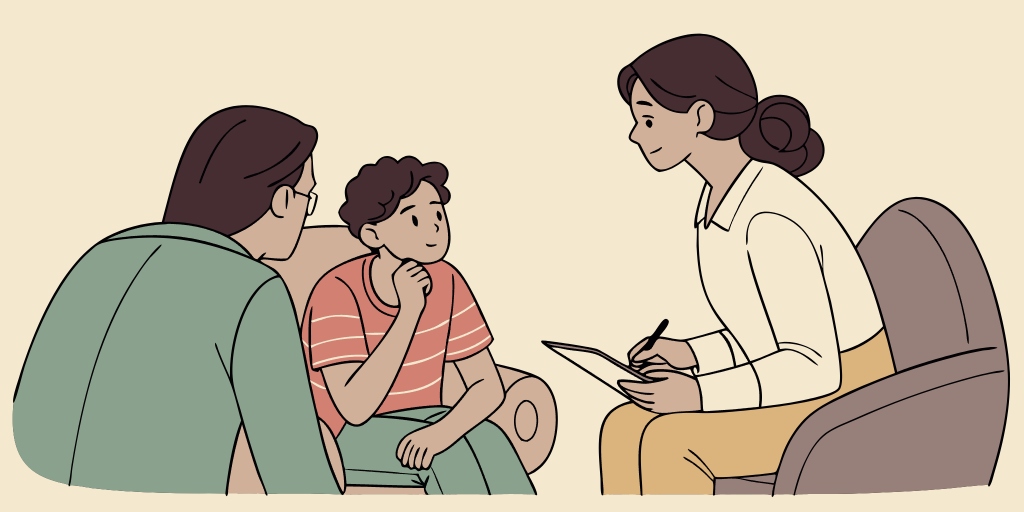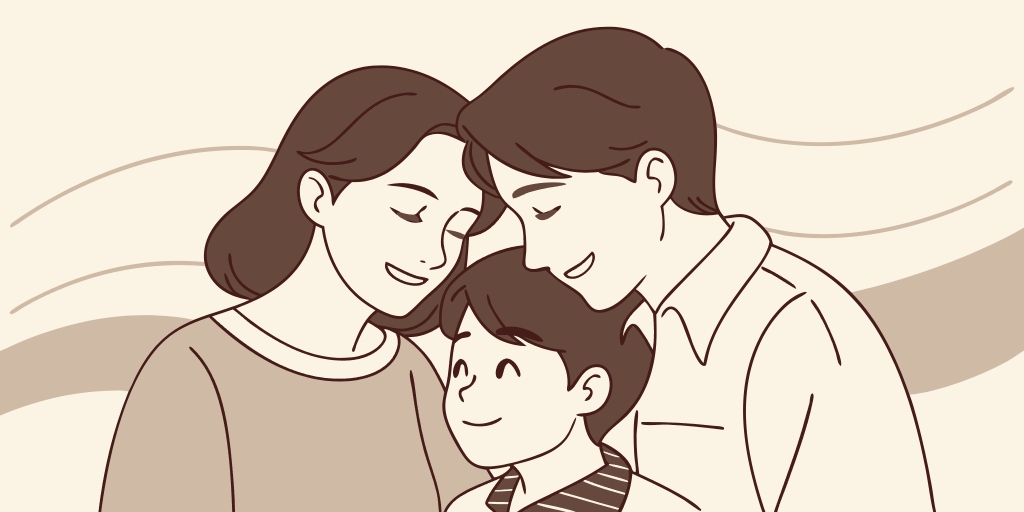The Basics for the Parents: 02 (Coping with the Rebellious Phase)
Parenting is a journey filled with countless rewarding moments, but it can also be challenging, especially during the rebellious phase of a child’s development. This period often leaves parents feeling confused, frustrated, or even helpless. However, understanding the basics of the rebellious phase and learning effective coping strategies can transform this difficult time into an opportunity for growth—for both the child and the parent.
In this comprehensive guide, we will explore what the rebellious phase entails, why it occurs, and practical advice on how parents can effectively navigate this challenging time. Whether your child is entering their teenage years or displaying signs of defiance earlier, this post is designed to support and empower you.
What Exactly Is the Rebellious Phase?

We call it the rebellious phase when in a child’s development they begin to challenge authority, question rules, and assert their independence. It typically occurs during adolescence, this phase is marked by routine mood swings, defiant behavior, and sometimes risky decisions.
Interestingly, the rebellious phase is not limited to teenagers. Some children might show signs earlier or later, but the essence remains the same: a natural drive to find their own identity separate from their parents.
Seeing Rebellion as a Milestone
Most parents often regard the rebellious phase as a problem, yet it’s also a developmental milestone. It signals that your child is beginning to think independently, test boundaries, and explore their values. While this can create friction and in hindsight can be seen as problematic but it’s also a sign that they’re preparing for adulthood. Recognizing this shift as a natural progression rather than a crisis can help parents approach it with more patience and optimism.
Why Does the Rebellious Phase Occur?
Guardians need to realize that the rebellious phase is a normal part of growing up. Several factors contribute to this behavior:
- Brain Development: During adolescence, the prefrontal cortex, responsible for decision-making and impulse control, is still developing. This leads to impulsivity and emotional outbursts.
- Desire for Independence: Children crave autonomy and start pushing boundaries to explore who they are.
- Peer Influence: As friendships become central, peer pressure can encourage rebellious acts.
- Parent-Child Dynamics: Parenting style and family environment play significant roles in how rebellion manifests.
Understanding these causes can help parents respond with empathy rather than frustration.
Hormones and Heightened Emotions
During the rebellious phase, hormonal changes often intensify emotions, making small disagreements feel like major conflicts. Parents who understand this biological influence can take a step back and avoid personalizing outbursts. It’s not that your child is choosing to be difficult—they’re navigating a body and mind in transition. This awareness helps you react with calmness rather than escalating the situation.
The Influence of Media
In the rebellious phase, media plays a larger role in shaping opinions and behaviors. Music, movies, social media influencers, and online communities can become reference points for your child’s identity. While not all influences are harmful, parents should be aware of what their child consumes and use it as an opportunity to discuss values, critical thinking, and boundaries.
Recognizing the Signs of the Rebellious Phase

Early detection of the rebellious phase can help parents prepare and respond appropriately. Look out for these common signs:
- Frequent arguments and defiance of rules
- Secretive behavior or lying
- Changes in social circles
- Mood swings or irritability
- Risk-taking activities such as skipping school or experimenting with substances
Nevertheless, it is essential not to jump to conclusions or label your child prematurely. Some behaviors might be temporary reactions to stress or environmental factors.
Case Study: Recognizing Early Signs #
Recognizing Early Signs As parents, understanding and coping with the rebellious phase in teenagers is crucial for fostering healthy relationships. Recognizing the signs early on allows for proactive strategies that promote mutual respect and effective communication. Embracing this phase as a natural part of adolescent development can lead to stronger connections and a smoother transition into adulthood.
Consider the example of Sara, a 13-year-old who started coming home later than usual and avoiding family conversations. At first, her parents thought she was just busy, but gradually they noticed mood swings and a drop in school performance. Recognizing these signs as part of the rebellious phase, they chose to approach her with understanding rather than punishment, which helped open up communication. (all examples are purely hypothetical but show general outcome of different ways of handling the child)
Every Child’s Timeline is Different
The rebellious phase doesn’t follow a fixed schedule. Some children enter it at twelve, others at sixteen, and some show only mild signs. Comparing your child to peers can lead to frustration and misplaced expectations. Instead, focus on your own child’s development and unique personality, tailoring your approach to their needs rather than a generic timeline.
Culture and Environment as Factors
The rebellious phase is influenced by culture, family structure, and societal expectations. In some communities, rebellion may manifest subtly, such as ignoring certain traditions, while in others it might be more overt. Understanding these cultural dynamics helps parents respond with sensitivity and context.
The Impact of the Rebellious Phase on Parents
Coping with a child in the rebellious phase is emotionally draining for many parents. Feelings of rejection, worry, and frustration can be overwhelming. However, understanding the psychological basis for rebellion helps mitigate negative emotions and fosters patience.
Emotional Rollercoaster for Parents
Parents often face guilt, questioning whether their parenting style contributed to the rebellion. However, it is crucial to remember that the rebellious phase is a developmental stage and not a personal attack. Support networks, including counselling or parent groups, can provide much-needed relief and perspective.
Effective Strategies for Coping with the Rebellious Phase
Though the rebellious phase can test family bonds, there are several ways parents can respond constructively:
Maintain Open Communication
Keeping the lines of communication open is vital. Rather than reacting with anger or punishment, parents should listen actively to their child’s concerns.
- Use “I” statements instead of accusatory language. For example, say “I feel worried when you don’t come home on time” instead of “You never follow the rules.”
- Encourage honest expression without judgment.
- Show empathy, even when disagreeing.
Practical Tips for Better Communication
- Schedule regular “check-in” talks where your child knows they have your undivided attention.
- Avoid multitasking during conversations to show respect.
- Validate your child’s feelings, even if you don’t agree with their choices.
Set Clear Boundaries and Consistent Consequences
Children need limits to feel secure. While rebellion often tests these limits, clear rules paired with consistent consequences help maintain order.
- Involve your child in rule-setting to increase cooperation.
- Ensure consequences are fair and related to the behavior.
- Avoid harsh punishments that can damage trust.
Example: Constructive Consequences
If your teenager breaks curfew, rather than grounding indefinitely, consider a temporary restriction like earlier curfew the next week or temporarily limiting certain privileges. This approach teaches accountability without breeding resentment.
Model the Behavior You Want to See
Children learn a lot by observing their parents. Modeling respectful communication, patience, and problem-solving encourages your child to emulate these behaviors.
- Demonstrate healthy ways to manage frustration.
- Show willingness to admit mistakes.
- Practice active listening.
Apologizing When You’re Wrong
Parents are not immune to mistakes during the rebellious phase. Admitting when you’ve overreacted or misjudged a situation models humility and accountability, which in turn encourages your child to take responsibility for their actions.
Encourage Positive Peer Influence and Activities
Since peer groups greatly influence rebellious behavior, helping your child find positive friends and hobbies can redirect their energy productively.
- Support involvement in sports, clubs, or volunteer work.
- Monitor their social activities without being intrusive.
Furthermore, praising positive behavior helps reinforce good choices.
Handling Conflicts During the Rebellious Phase
Conflicts are inevitable, but the way they are handled can strengthen or strain relationships. Consider these tips:
- Stay calm and avoid escalating arguments.
- Take breaks if discussions become too heated.
- Focus on resolving the issue rather than winning the argument.
- Use humor or distraction when appropriate to diffuse tension.
Communication Techniques for Conflict Resolution

- Practice reflective listening by repeating what your child says to ensure understanding.
- Ask open-ended questions to encourage dialogue.
- Avoid blame; instead, express how the behavior affects you.
Avoiding the Trap of Over-Parenting
During the rebellious phase, micromanaging every decision can backfire. While supervision is important, giving your child some room to make mistakes fosters independence and problem-solving skills. Over-parenting often fuels the very defiance you want to reduce.
Bridging the Gap Through Empathy
One of the most effective ways to navigate the rebellious phase is to approach it with empathy rather than judgment. Try to see the world from your child’s perspective—how their challenges at school, pressures from friends, and search for identity may feel overwhelming. When you show that you understand their struggles, even without agreeing with their choices, you create a safe emotional space. This sense of safety often reduces defiance and encourages open dialogue, making it easier to address problematic behavior together.
During this rebellious phase, it’s crucial for parents to maintain open communication with their children. By listening attentively to their concerns and respecting their opinions, you pave the way for a stronger bond and mutual understanding. Remember, this challenging time is an opportunity for growth and learning, both for you and your child. Embrace it with patience and empathy, knowing that together, you can navigate through this phase successfully.
When to Seek Professional Help
Sometimes, the rebellious phase may indicate deeper issues such as mental health problems, substance abuse, or family dysfunction. If you notice the following, consider consulting a professional:
- Persistent aggressive or self-harming behavior
- Withdrawal from family and friends
- Decline in academic performance
- Signs of depression or anxiety
Types of Professional Help Available

- Family counseling or therapy
- School counselors or psychologists
- Support groups for parents and teens
Early intervention can make a significant difference in outcomes.
Listening Beyond Words
During the rebellious phase, what your child says is often just the surface of a deeper emotion. They may use sharp words or sarcasm to mask fear, insecurity, or confusion. By listening for the tone, pauses, and body language behind their words, you gain insight into what they truly mean. This deeper form of listening builds trust and helps you respond to the real issue rather than just the symptom.
Asking Questions That Invite Honesty
During the rebellious phase, direct interrogation often pushes teens to shut down. Instead, ask open-ended questions like, “How do you feel about what happened at school?” This approach encourages genuine dialogue and shows that you value their perspective, even if you disagree.
Supporting Your Child’s Emotional Well-being
Beyond discipline and communication, nurturing your child’s emotional health is crucial. This includes:
- Recognizing and validating their feelings
- Encouraging self-expression through art, writing, or music
- Promoting healthy sleep, nutrition, and physical activity
Mindfulness and Emotional Regulation
Teaching your child mindfulness or breathing exercises can help them manage stress and emotional outbursts during the rebellious phase.
Normalizing the Need for Support

During the rebellious phase, some parents hesitate to seek help, fearing it reflects poorly on their parenting. In reality, reaching out to professionals is a sign of strength, not failure. Just as you’d consult a doctor for a persistent cough, it’s wise to involve experts when emotional or behavioral challenges persist. Normalizing this approach shows your child that asking for guidance is a healthy, responsible choice.
The Role of Self-Care for Parents
While focusing on your child’s needs, do not forget your own well-being. Parenting through the rebellious phase can be exhausting, so:
- Seek support from friends, family, or parent groups.
- Practice stress-relief techniques like meditation or exercise.
- Set aside personal time regularly.
A well-balanced parent is better equipped to support a rebellious child.
Balancing Firmness with Understanding
In the rebellious phase, striking the right balance between enforcing rules and showing compassion is key. Too much rigidity can push your child further away, while too much leniency can undermine the structure they still need. The goal is to demonstrate that rules exist for their safety and growth, not as a tool for control. This balance reassures your child that even in moments of conflict, your actions come from a place of care.
Celebrating Small Wins
In the rebellious phase, progress may be slow, but every step matters. Whether it’s a respectful conversation after an argument or a responsible decision, celebrating these moments reinforces positive behavior and motivates your child to keep growing.
Encouraging Positive Growth Through the Rebellious Phase
Though challenging, the rebellious phase is also an opportunity for growth:
- Allow your child to make choices and learn from mistakes within safe limits.
- Encourage goal-setting and personal responsibility.
- Celebrate achievements, no matter how small.
Turning Rebellion into Resilience

When handled constructively, the rebellious phase can be more than a hurdle—it can become a training ground for resilience. Each clash, negotiation, and compromise teaches both parent and child how to adapt under pressure, manage emotions, and recover from setbacks. By framing rebellion as part of the learning curve, you help your child emerge not just independent, but also emotionally equipped for adulthood.
The Role of Changing Social Dynamics
As children move deeper into the rebellious phase, their social world expands beyond the family unit. Friendships, romantic interests, and exposure to different viewpoints can influence their values and behavior. While this shift can feel threatening to parents, it’s also a critical step in developing a sense of individuality. Guiding your child to navigate these relationships with discernment helps them build social skills while still respecting family values.
Final Thoughts on Navigating the Rebellious Phase
In conclusion, the rebellious phase is a natural and essential part of a child’s journey toward adulthood. By understanding its causes, recognizing signs, and employing effective coping strategies, parents can transform this challenging period into an opportunity for deeper connection and mutual growth.
Remember, patience and empathy are your greatest tools during this time. Though difficult, the rebellious phase will eventually pass, leaving behind stronger family bonds and more resilient children.
Frequently Asked Questions (FAQ)
1. Why is my child acting rebellious?
Rebellion is often a natural part of growing up. Children may act out to assert independence, express emotions, or cope with peer and academic pressure.
2. At what age does rebellion usually start?
Rebellious behavior often appears during pre-teen and teenage years (11–18), but younger children may also show signs as they begin testing limits.
3. Should I punish my rebellious child?
Harsh punishment can worsen defiance. Instead, set clear boundaries with consistent consequences, while also maintaining open communication and empathy.
4. How do I talk to a child who won’t listen?
Stay calm, avoid yelling, and try to understand their perspective. Use active listening, show respect, and create a safe space for honest conversations.
5. What role does peer pressure play in rebellion?
A big one. Many children rebel due to the influence of friends, trends, or social media. Guiding them involves building trust so they feel safe sharing.
6. Can rebellion be a good thing?
Yes. Rebellion can encourage independence, critical thinking, and self-expression when guided properly. The key is balancing freedom with responsibility.
7. How do I know if my child’s rebellion is serious?
If rebellion involves constant aggression, risky behavior, or withdrawal from family/school, it may signal deeper issues. Professional counseling can help.
8. How do I stay patient as a parent?
Focus on long-term growth, not instant obedience. Practice empathy, take breaks when needed, and remind yourself that rebellion is part of healthy development.
For a better insight into parenting


Leave a Reply